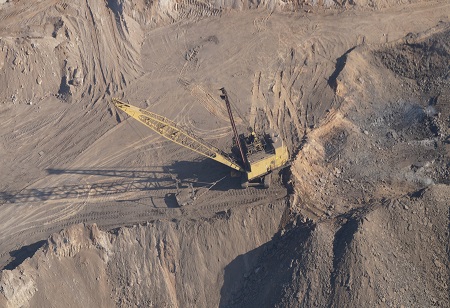
The Mines and Minerals (Development and Regulation) Amendment Act 2023 received the assent of the President last week. It aims to promote private sector involvement in mineral exploration, including valuable resources like lithium. Being touted as a prominent reform, it introduces exploration licenses specifically for deep-seated and crucial minerals such as gold, silver, copper, zinc, lead, nickel, cobalt, platinum group minerals, and even diamonds. This empowers the central government to auction mines and increase production of 26 vital minerals in India.
However, the exploration of such minerals poses noteworthy challenges due to their depth and associated high costs. The proposed exploration licenses seek to create an environment that is conducive to foster private sector engagement in all aspects of mineral exploration, with a particular focus on critical and deep-seated minerals. By providing incentives and encouragement, these licenses are designed to attract private companies to participate in the exploration of these essential minerals, potentially unlocking new avenues for resource extraction and economic growth.
“Even in case of conduct of auction by the central government, the mineral concession shall be granted to the selected bidders by the state government only and the auction premium and other statutory payments shall accrue to the state government,” said Prahlad Joshi, union mines minister while introducing the bill in Lok Sabha.
Let us take a look at how mineral exploration will change on the heels of the act.
Increased Investment
The entry of private players for mineral exploration will definitely attract huge capital into this segment. Private firms are usually the owners of the larger financial resources and thus an investment in innovative technologies and techniques is more feasible for them. This can be translated as precision and speed of the surveys, hence, the new ore bodies and resources can be revealed.
One private player who is spending a lot in the area of mineral exploration is Vedanta Limited, a metallurgical and mining multinational corporation from India. Vedanta has poured its efforts in different mineral exploration projects including iron ore, copper, zinc and oil and gas. The corporation has shown its genuine interest in the development and expansion of its mining operations in India and other countries and is paying attention to the sustainable mining practices as well as use of technology in order to extract and process minerals in the most efficient and environmentally friendly manner. In this way, private players' contribution to mineral exploration and production is a good example of how the private sector can offer economic growth and technology improvements.
Technological Advancements
Private companies often bring advanced technologies and innovation to mineral exploration. Their expertise in remote sensing, geospatial analysis, data analytics, and other cutting-edge techniques can improve the accuracy and efficiency of exploration efforts. These advancements can lead to the discovery of previously unnoticed deposits and enhance the overall exploration process.
One instance of a private company revolutionizing mineral exploration through advanced technologies is KoBold Metals. The California-based start-up is leveraging artificial intelligence, machine learning, and big data analytics to identify new sources of critical minerals, including cobalt and nickel, crucial for electric vehicle batteries. KoBold combines geological expertise with cutting-edge technology to analyze massive datasets and identify potential mineral deposits. This innovative approach significantly accelerates the exploration process, reduces environmental impact, and enhances the efficiency of mineral discovery.
Accelerated Exploration
The private sector engagement could shorten the exploration process. Government agencies sometimes come across resource limitations and bureaucracy which could be the reasons for the delay of exploration activities. Private companies are more prone to look for maximizing efficiency and timely delivery on top of everything. This could enable mine operations to be carried out at a faster pace, thereby enhancing economic growth and development.
Together with Unearthed Solutions, a company which is a specialist in hackathons and innovation challenges, OZ Minerals, a mining company from Australia partnered. While OZ Minerals had the understanding of the fast method of identifying potential mineral deposits, it took advantage of the situation. In partnership with Unearthed Solutions, they held an "Explorer Challenge" – a hackathon-style event that attracted data scientists, geologists, and innovators from different parts of the globe with the purpose of analyzing geological and geophysical data provided by OZ Minerals.
During the challenge, participants used their expertise to analyze and interpret vast amounts of geological data. They applied various algorithms, machine learning techniques, and data visualization tools to identify patterns and anomalies that could indicate the presence of valuable minerals. The outcome was impressive – within a few months, the participants generated valuable insights that would have taken years using conventional methods. The analysis provided by the participants helped OZ Minerals narrow down potential exploration sites and prioritize areas with higher mineral potential.
Going forward, the future of mineral exploration in India holds promise as the nation embraces such approaches. With the involvement of private players, the exploration process is set to become more efficient and rapid. Advanced technologies like artificial intelligence, data analytics, and remote sensing will play a pivotal role in identifying potential mineral deposits. These innovations will not only expedite exploration but also enable the discovery of previously untapped resources. The integration of private sector expertise, coupled with cutting-edge technologies, will reshape India's mineral exploration landscape, fostering sustainable growth and enhancing the nation's self-reliance in essential minerals.
We use cookies to ensure you get the best experience on our website. Read more...